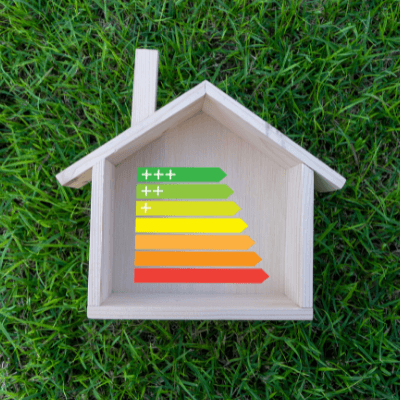Are French Doors Energy Efficient?
French doors are one of the most attractive and functional doors you can add to our home. Despite these benefits, however, you should also consider the energy efficiency of the doors you are installing.
If you are unsure whether French patio doors are right for your home, take a look at our guide to energy efficiency.
Why is Energy Efficiency Important?
The energy efficiency of your home affects a lot of other factors. Low energy efficiency can lead to increased heating bills if you are using more energy than needed to keep your home warm. Excessive energy use also has a negative impact on the environment.
Investing in an energy efficient home will ensure you start to see improvements on your bills and the overall temperature regulation of your home.
How Is Energy Efficiency Measured?
Most manufacturers tend to judge energy efficiency by something called a ‘U value’. All windows and doors will have a U-value, not just external French doors.
The U-value is measured in watts per square metre Kelvin (W/m2 K). The U-value of the door represents how much heat is lost through them, meaning the lower the U-value for a door, the more energy efficient the door is, and the better it is at keeping warm air in the room.
The ideal U-value for any window or door is a 0, meaning that no heat is lost through the doors or windows. This level is almost impossible to reach, so a good value to judge by is 1.8W/m2 K, a good average for most windows and doors.
Are French Doors Energy Efficient?
Yes, when installed manufactured well and installed correctly, French doors are incredibly energy efficient! Both UPVC French doors and aluminium French doors are made of thick, strong material that is easily sealed, helping to boost the doors’ ability to keep heat in.
However, there are circumstances and factors that can reduce the energy efficiency of these doors.
Factors Affecting Energy Efficiency
- Door Thickness – thicker doors will often keep in more heat than thinner framed doors as there is more depth for any heat to escape through.
- Door Material – both UPVC French doors and aluminium French doors are far more energy efficient than timber frames doors. Wooden doors can be laminated or treated in order to become more energy efficient, but the material in itself cannot match up to more advanced substrates.
- Type of Glass Used – the type and thickness of the glass used within the exterior French doors. Single glazing offers almost no energy efficiency in comparison to double glazed or toughened and treated glass.
- Accuracy of Installation – a door that is fitted badly in its frame will let heat escape through the gaps, reducing the energy efficiency of the doors.
How to Increase Energy Efficiency
If you are not looking to replace your current French patio doors but you do want to increase the energy efficiency of your current setup, there are a few things you could do.
The easiest option would be use heavy curtains or something similar behind the door to reduce the heat flow.
If your installation wasn not perfect, you can also look to replace the gaps around the edges with sealant to prevent any heat from escaping.
You could also use a draught excluder at the bottom of the door.
For more advice regarding French doors, get in touch with our friendly team.


